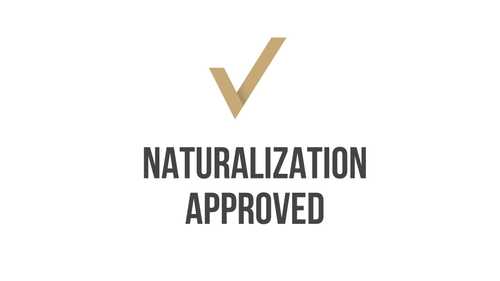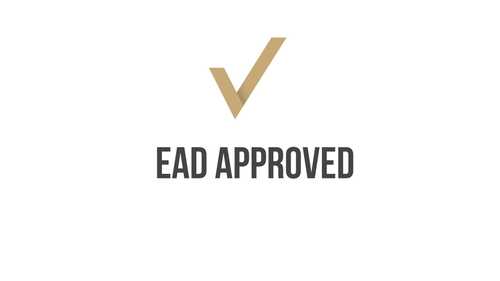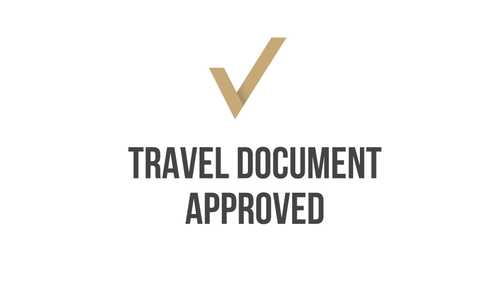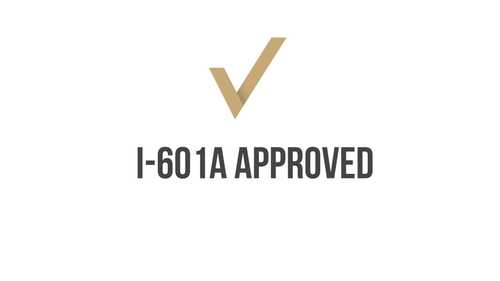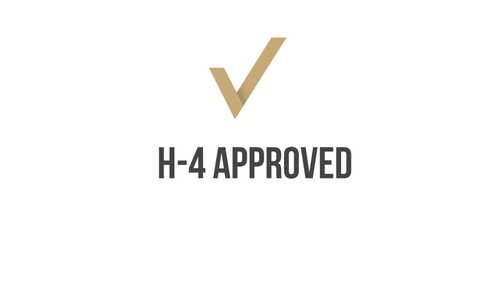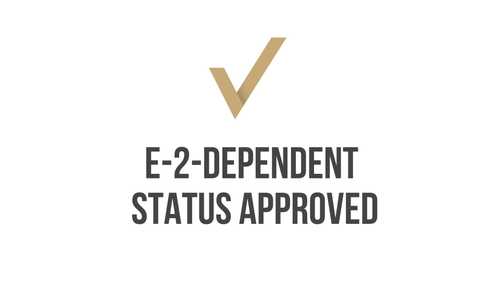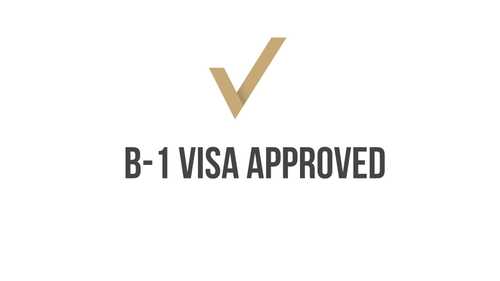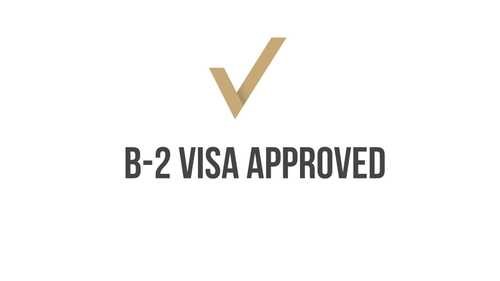

Individual Immigration
Pandev Law’s individual immigration practice provides strategic solutions to the numerous immigration issues faced by foreign nationals residing in, traveling to, or relocating to the United States. As a full service immigration law firm, our attorneys have the necessary depth and breadth of experience to develop effective immigration strategies in even the most complex cases. Our individual immigration practice has counseled clients on various immigration matters, including applications for naturalization, student visas, waivers, and expatriation, among many others. To meet the multi-front challenges of immigration cases, our attorneys use a multidisciplinary approach, combining our immigration, business, and wealth protection practices to deliver effective immigration strategies to clients nationwide and around the world:
Talk to a Lawyer
5.0-star rated company
based on 246 customer reviews on Google
Individual Immigration Client Reviews

US Citizenship
Our immigration attorneys have extensive experience helping individuals obtain US citizenship. Becoming a US citizen grants many rights and privileges, including the ability to vote in US elections and the ability to work for the federal government. To become a US citizen you must either acquire or derive citizenship through a US citizen parent or apply for naturalization. Our talented team of immigration lawyers provides coordinated, effective counsel on how to become a US citizen:
Naturalization
If you have lived in the United States as a permanent resident for five years, you may be eligible to become a naturalized US citizen. For permanent residents who have been living in marital union with a US citizen for three years, the five-year requirement is reduced to three years. In addition to the mandatory years of permanent residence, to be eligible for naturalization, you must demonstrate that you meet certain physical presence and continuous residence requirements. Prior criminal convictions or immigration violations can pose an obstacle to naturalization. Our attorneys have an in-depth and personal understanding of the naturalization process. In addition to having filed numerous naturalization applications for clients over the years, our principal attorney is a naturalized US citizen. This gives us personal experience in addition to our professional experience with the naturalization process. Pandev Law is known for devising creative solutions even in the most complex cases, representing applicants who spend a significant portion of the year overseas, who owe back taxes, or who have serious criminal convictions.
Certificate of Citizenship
If you were born outside the United States to a US citizen parent, you are under eighteen, and currently in the United States, you may be eligible to apply for a Certificate of Citizenship. The Certificate of Citizenship process is different from naturalization because it is reserved for applicants who have acquired or derived citizenship through a US citizen parent. You are eligible for US citizenship through acquisition if you were born to a US citizen parent, whether biological or adoptive, outside the United States. You derive US citizenship if your foreign national parent became a US citizen through naturalization before your eighteenth birthday. The Certificate of Citizenship is a critical document which serves as unquestionable proof of your US citizenship. Our immigration lawyers understand the Certificate of Citizenship application process and can represent you before US Citizenship and Immigration Services (USCIS) in obtaining this critical document.
Consular Report of Birth Abroad
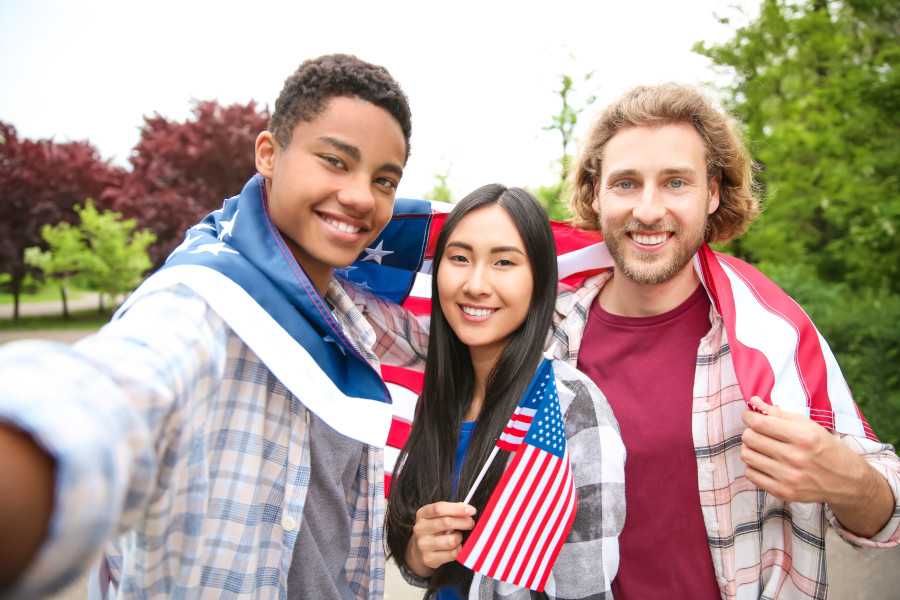
Student Visa
Students who wish to study at an accredited academic institution in the United States must apply for an F-1 or M-1 student visa. Student visas are governed by a strict set of complex rules and deadlines. Even the smallest mistake can lead to denial of your student visa application or jeopardize your M-1 or F-1 status once you are in the United States. Representing foreign national students in student visa related matters is one of Pandev Law’s niche practice areas. Our principal attorney, Adrian, started working with students through his affiliation with universities and his work as an adjunct professor. Over the years, Pandev Law has become a leading law firm in all matters related to M-1 and F-1 student status, having represented numerous students through various student visa related issues, including:
Student Visa Application
Pandev Law’s student visa immigration lawyers regularly represent M-1 and F-1 visa applicants at US embassies and consulates worldwide. Our attorneys are known for their ability to create effective strategies even in the most complex student visa cases. In addition to first time student visa applicants, we regularly represent students who wish to reapply for an M-1 or F-1 student visa after initially receiving a denial. Relying on our deep understanding of the student visa regulations, our student visa immigration lawyers critically analyze past denials to craft successful reapplication strategies. Our immigration lawyers also counsel students who are applying for a student visa extension. We have a long track record of success with student visa applications, having obtained approvals for students whose M-1 or F-1 status was previously terminated and who had past visa denials and immigration violations.
OPT Business Formation
Pandev Law is the leading law firm inOPT business formation. We combine our experience in startup, business, and immigration law to advise student entrepreneurs whowish to start a business during their OPT period. Post-completion Optional Practical Training (OPT) provides 12-months of employment authorization after graduation to F-1 students seeking employment in their field of study. The regulations specifically allow students to be self-employed during this period as long as they fulfill certain requirements, such as having all necessary business licenses. For entrepreneurial students, OPT self-employment can be an incredible opportunity to start and scale a business in the United States. Many of our clients went from founding their company while on OPT to raising venture capital and transitioning to other employment-based visas, such as O-1 or E-2 visas. Combining our extensive venture financing and immigration experience, our attorneys form companies for OPT students that are compliant with immigration laws and also meet the expectations of angel investors and venture capital funds.
Change of Status Student Visa
In some cases the student visa applicant is already in the United States in another status, such as J-1 or B-2. In these cases, the student may not wish to depart the United States and attend an F-1 visa interview at a foreign embassy or consulate outside of the United States. Our student visa lawyers represent clients in F-1 change of status cases. We are familiar with the issues that frequently arise when changing status to F-1. Our student visa immigration lawyers develop practical solutions that minimize risks and ensure that clients maintain valid immigration status as they await approval of their F-1 change of status application.
Student Visa Transfer
F-1 Reinstatement
OPT EAD Application

J-1 Services
The J-1 visa is reserved for exchange visitors coming to the United States to participate in a program administered by the US Department of State (DOS). There are several different J-1 visa program categories, including: teachers, au pairs, trainees, professors and research scholars, short-term scholars, foreign medical graduates, specialists, international and government visitors, camp counselors, college students, secondary school students, and students entering the United States for summer work travel. Our immigration lawyers counsel clients on all matters related to J-1 status, including:
J-1 Visa Application & Change of Status
Pandev Law’s individual immigration practice counsels applicants seeking to obtain a J-1 visa or to change status to J-1. Before applying for a J-1 visa or change of status, applicants must obtain a Form DS-2019, Certificate of Eligibility for Exchange Visitor from the J-1 program sponsor. J-1 applicants must also demonstrate that they have a residence in a foreign country to which they intend to return after the program end date. There are various other requirements specific to each J-1 program category. Our immigration lawyers are intimately familiar with the J-1 visa requirements for all categories and provide legal advice and representation to those wishing to obtain a J-1 visa. Our law firm is known for successful results in complex J-1 cases, including those of applicants with past immigration violations and visa denials. We focus on developing effective, practical immigration solutions.
J-1 Visa Waiver
Section 212(e) of the Immigration and Nationality Act mandates that certain J-1 visa holders and their depends in J-2 status return to their home country for two years before before they can adjust status to permanent resident or change status to another nonimmigrant classification, such as H-1B or L-1. Alternatively to returning home for two years, individuals subject to Section 212(e) may apply for a waiver of the two-year home residency requirement. If your J-1 waiver application is approved, you do not have to return to your home country for two years and may proceed to adjust or change status in the United States. Our immigration lawyers represent clients with applications based on all five J-1 waiver grounds:
- No Objection Statement from the applicant’s home country
- Request by an interested US government agency
- Persecution faced by the applicant if forced to return to their home country
- Exceptional hardship to a US citizen or lawful permanent resident or child if the applicant had to depart the United States for two years
- Conrad 30 waivers for foreign physicians
Pandev Law’s individual, employment-based, and family-based immigration practices work together to counsel J-1 waiver applicants, their employers, and US citizen and permanent resident relatives on developing effective strategies for waiving the two-year home residency requirement. We rely on our lawyers’ in-depth immigration experience to craft comprehensive solutions that meet client’s professional and personal goals.

Waivers of Inadmissibility
Some foreign nationals are barred from entering the United States because they are deemed inadmissible. If you are determined to be inadmissible, you will not be able to adjust status to become a permanent resident in the United States or obtain a visa to enter the United States. Past immigration violations, criminal convictions, fraud or wilful misrepresentation, or false claims to US citizenship, among others, can all render you inadmissible. Fortunately, some grounds of inadmissibility may be waived, thereby allowing your visa or adjustment of status application to be granted.
Our immigration attorneys have extensive experience with the inadmissibility waiver process for both immigrant and nonimmigrant visa applications. We represent clients in Section 212(d)(3) waiver applications filed concurrently with nonimmigrant visa applications at US embassies and consulates worldwide. Our immigration lawyers routinely file I-601 applications to waive inadmissibility and I-601A unlawful presence waiver applications with US Citizenship and Immigration Services (USCIS). We also develop thorough I-601 waiver strategies for immigrant visa applicants and provide strategic counsel on obtaining a waiver during immigrant visa interviews at US embassies and consulates.
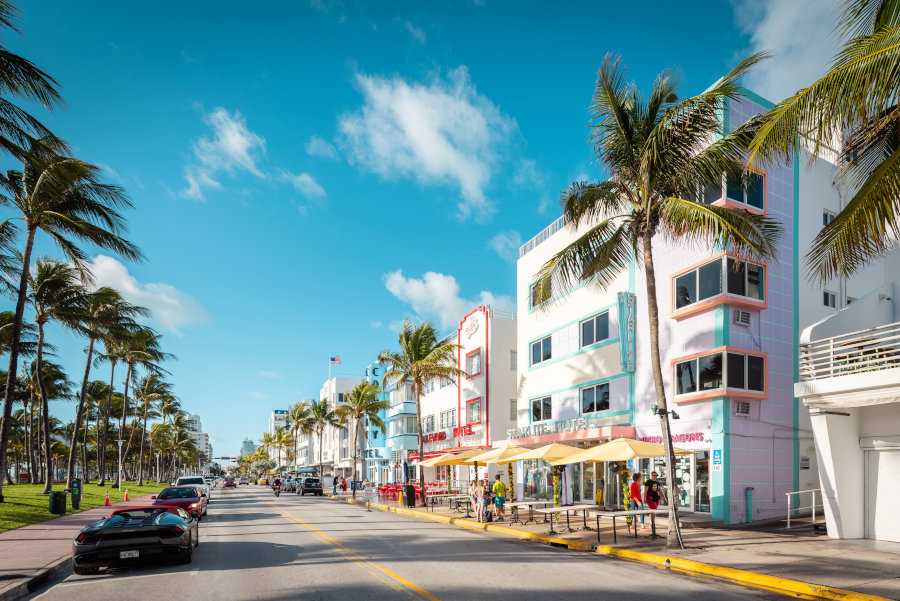
Visitor Visa
Travelers may enter the United States on a visitor visa for short, temporary trips lasting up to six months. The B-1 business visitor visa and B-2 visitor for pleasure visa are often overlooked solutions for many individual immigration goals. Our immigration attorneys help clients obtain a B-1 visa to travel to the United States for professional conferences, business meetings, contract negotiations, or to install machinery or equipment purchased from a foreign company. We also advise on B-2 visa applications for individuals who wish to travel to the United States for pleasure, whether it’s to spend time at their winter home in Florida, to visit a child attending college in the United States, or to visit family living in the United States. Pandev Law is known for devising effective visitor visa strategies for applicants with past immigration or criminal violations or past visa refusals. Our immgration lawyers use their years of experience to advise and guide clients through their visitor visa applications. Our goal is to secure a 10-year B-1 or B-2 visa for clients so that they may effortlessly travel to the United States for a decade.

Dependent Visa
All principal nonimmigrant visa categories have an accompanying dependent visa category reserved for spouses and dependent children under the age of 21 of the principal visa holder. Dependent visas allow immediate family members to accompany the principal visa beneficiary to the United States. Often employer sponsors will cover the application costs and legal fees associated with the principal beneficiary’s visa but will not do so for accompanying family members. Pandev Law is often retained to create a strategy and represent the principal applicant’s immediate family members in their visa or change/extension of status applications. Our attorneys work closely with both principal beneficiaries and their immediate family members to ensure implementation of a comprehensive solution that allows the entire family to reside together in the United States. Our goal is to take away the stress associated with immigration applications and to allow your family to continue you normal day-to-day routine as we take care of the dependent visa applications.

Request for Evidence Responses
If US Citizenship and Immigration Services (USCIS) cannot make a determination on a case based on the evidence initially submitted with the application, the agency will issue a Request for Evidence (RFE) or a Notice of Intent to Deny (NOID). In its RFE or NOID letter, the USCIS officer assigned to your case will explain how the evidence you submitted is insufficient and will provide you with an opportunity to submit additional evidence demonstrating your eligibility for the desired benefit. You must respond before the deadline and include all evidence requested in the RFE or NOID otherwise USCIS may deny your application. Clients often retain our immigration attorneys after they receive an RFE or NOID on their application. Our immigration lawyers have years of experience responding to RFEs and NOIDs and understand the most critical evidence for each application type. We review clients’ initial filings and supplement the record as needed through a well-crafted response. Our goal is to obtain a swift approval of your case after filing a response to the RFE or NOID.

Freedom of Information Act
The Freedom of Information Act (FOIA) provides every foreign national the opportunity to obtain their immigration file from the government. This can be done by filing a formal request with the appropriate government agency, such as the US Department of State (DOS) for consular and visa files, US Citizenship and Immigration Services (USCIS) for records of applications and petitions for immigration benefits, US Customs and Border Protection (CBP) for entry records including secondary inspection records, US Immigration and Customs Enforcement (ICE) for immigration arrest records, and US Department of Justice, Executive Office of Immgiration Review (DOJ EOIR) for immigration court case files. In some cases, FOIA requests are filed because it is critical to review the entire record to ensure the most optimal immigration strategy is chosen for a case. In other instances, documents to establish a critical fact in a case may be in the government’s possession and the only way to access these is through a FOIA request. Regardless of the reason you may wish to obtain your immigration case file, our attorneys can represent and guide you in the submission of your request.

Case Expedite & Mandamus
If your case has been pending with US Citizenship and Immigration (USCIS) for a long time, you may request that the agency expedite the processing of your case. This can be achieved through submitting a USCIS case inquiry request online or an expedite request over the phone with a USCIS representative. USCIS will respond with an email requesting that you submit evidence demonstrating why your case merits expedited processing. Our immigration attorneys have experience assisting clients in expediting their immigration cases and can help determine the best strategy for your long pending immigration case. Our immigration attorneys also file petitions for writs of mandamus to compel USCIS to take action on a case. A writ of mandamus is a civil lawsuit filed in the Federal District Courts of the United States. If the judge agrees that your case has been pending for an unreasonably long time, the judge will issue an order compelling the government to adjudicate the case. After a judicial order is issued, cases are usually decided by USCIS within a matter of weeks. As a Trial Attorney at the US Department of Justice, our principal attorney, Adrian, gained uniquely valuable experience defending USCIS in such mandamus cases in US District Courts nationwide. Our immigration lawyers use their years of experience combined with Adrian’s thorough understanding of the strategies and arguments USCIS employs in defending mandamus cases to deliver results to clients.
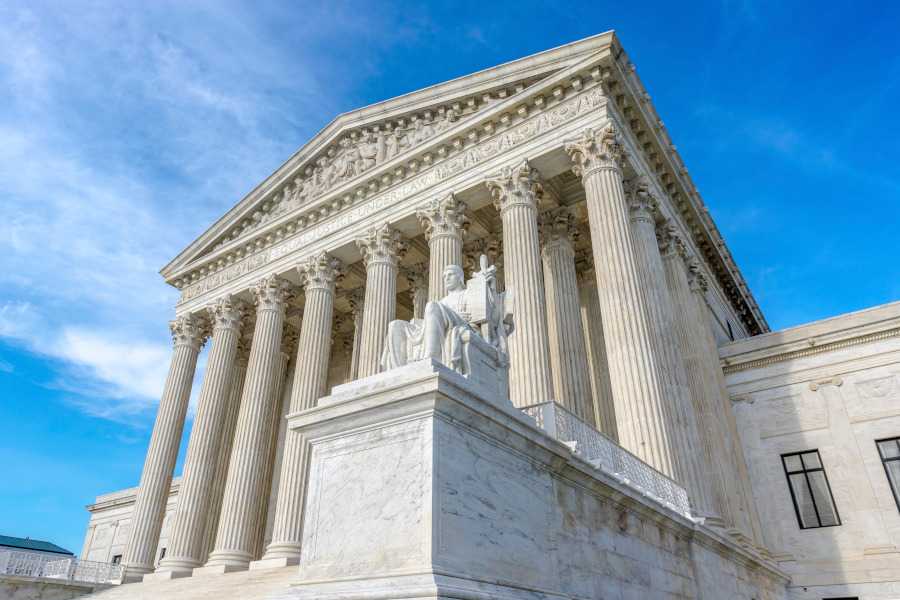
Appeals & Litigation
An adverse decision by the government on your immigration case does not mean that all hope is lost. If you receive a denial in your case, you may refile the case with the relevant government agency, file an administrative appeal or motion to reopen or reconsider, or file a lawsuit under the Administrative Procedures Act challenging the government’s incorrect decision based on an arbitrary and capricious interpretation of the laws and regulations. While serving as a Trial Attorney at the US Department of Justice, Office of Immigration Litigation, in Washington DC, our principal attorney, Adrian, defended USCIS in such District Court challenges. Our immigration lawyers have a track record of successfully appealing and reopening denials issued by USCIS. We represent clients before the USCIS Administrative Appeals Office (AAO), the Board of Immigration Appeals (BIA), US District Courts, and US Courts of Appeal to challenge incorrect decisions and deliver the results our clients deserve.
In addition to challenging agency decisions, our immigration litigation services also include denaturalization defense. Denaturalization is the process by which the US government takes an individual’s US citizenship for their membership in a terrorist or subversive group, dishnorable discharge from the military, inadmissibility at the time of adjustment of status, or misrepresentation of material information in their naturalization or adjustment of status application, among other reasons. The denaturalization process starts with the US Department of Justice filing a lawsuit in US District Court against you, requesting the judge to revoke your US citizenship. As a Trial Attorney, our principal attorney, Adrian, litigated denaturalization cases on behalf of the US Department of Justice. Adrian’s experience provides our individual immigration practice with a unique understanding of the motivations behind the government’s initiation of a denaturalization case. It also makes us intimately familiar with proven, successful defense strategies that we use to preserve our clients’ US citizenship.
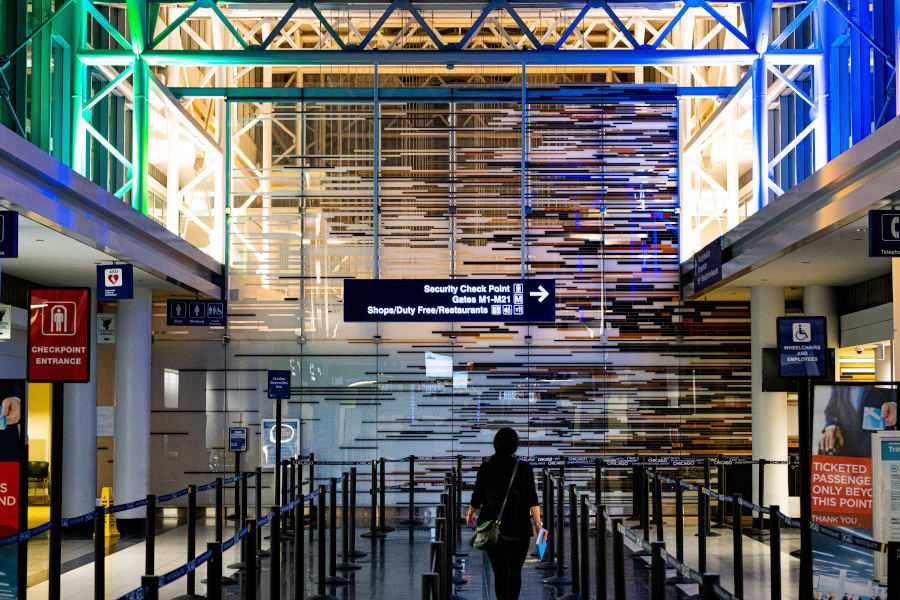
Global Entry Appeal
The Global Entry program is an international travel program that allows frequent travelers to pass through US customs faster by using an expedited admission process. To be eligible for Global Entry one must submit an application and pass a background check, including an in-person interview with a Department of Homeland Security officer. The immense time savings provided by the Global Entry program are incredibly valuable to frequent international travelers. This is why a denied application or revocation of Global Entry can be such a burden. Fortunately, if your Global Entry application is denied, you may file an appeal.
Our immigration lawyers know how to overcome most grounds for a denial. Our immigration attorneys perform a critical analysis of the decision and craft a strategy tailored to your case. In most cases, Global Entry applications are denied because the agency believes that the applicant poses a security risk based on criminal convictions or customs violations. To overcome an adverse decision, our immigration lawyers submit an appeal to either the Enrollment Center or the Customs and Border Protection Ombudsman highlighting your good moral character, your need for Global Entry, and the burden not having Global entry will place on you and your family. If you have a record of criminal convictions or customs violations, we demonstrate your rehabilitation and submit evidence proving that you are not a security risk to the United States.

CBP Currency Seizures
When entering or leaving the United States with cash or other monetary equivalents exceeding $10,000, you must file a report with US Customs and Border Protection (CBP). If you fail to report and CBP finds you carrying currency in excess of $10,000, the agency has the authority to seize your currency. There are generally three options to retrieve your seized currency: (1) filing an administrative petition with CBP, (2) making an offer in compromise, or (3) requesting a judicial action. Our attorneys have a strong understanding of the laws and regulations governing currency seizures as well as the procedures of the CBP Fines, Penalties, and Forfeitures department. We devise custom strategies tailored to each client’s needs. The amount of currency seized, the port of entry, and the nature of monetary equivalents will influence the best strategy in your case. Our attorneys know how to negotiate with CBP or to fight against the agency in an administrative or judicial action. Regardless of the strategy chosen, our focus stays the same – to help you recover as much of your cash assets as possible.
Adrian Pandev
As the principal attorney at Pandev Law, I have helped hundreds of foreign individuals and companies successfully navigate their journey to the United States. Previously, I served as Trial Attorney at the U.S. Department of Justice. Now, I represent foreign investors, founders, and high-net-worth-individuals in business, immigration, and wealth planning matters. I am an early proponent of blockchain technology and serve as strategic advisor to blockchain startups and cryptocurrency investors. Selected to the Super Lawyers New York Rising Starslist 2019-2021. Follow me on Twitter, LinkedIn, or Instagram.
As featured in
Pandev Law provides the following legal services
Our Locations
Copyright Pandev Law, LLC © 2024










